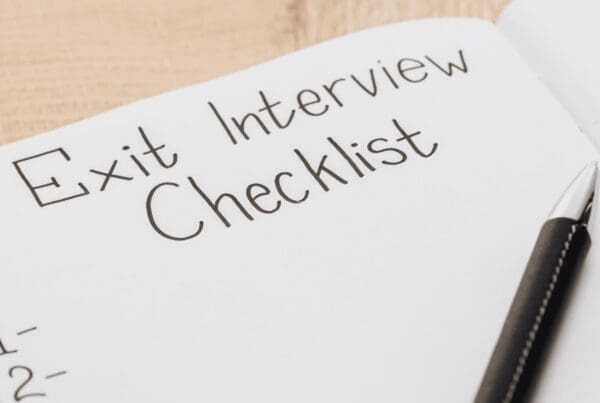Personal connections land jobs. Everybody knows that. Hence, “It’s not what you know, but who you know.” Indeed, in surveys, it’s typical for roughly half of employees to say that they found their job through a friend, family member, or other type of social network contact. But not all connections are likely to be equal. In a job search, talking to people and networking is clearly important, but who are the best people to talk to?
How social networks matter for getting jobs—and all other sorts of life outcomes—has long pre-occupied sociologists and networks researchers. The classic answer to the question of which contacts matter for finding a job starts with the work of Mark Granovetter, who in the late 1960s and early 1970s interviewed a few hundred Boston-area job seekers. To his surprise, Granovetter found that people were much more likely to land jobs from information passed on by people they weren’t particularly close to. In interviews, Granovetter asked people whether a friend had told them about their current job, and time and again people said things along the lines of, “Not a friend, an acquaintance.”
Granovetter began systematically tracking the “strength” of the social tie between job seekers and the people giving them employment leads, and found that of those who found jobs through contacts, only 17% saw their contact “often,” while 56% saw the contact “occasionally,” and 28% saw him “rarely.” The punch line: the people in your life who you don’t know too well are the ones who often matter the most when it comes time to find a job.
Plenty of other studies since have backed up the importance of what Granovetter dubbed “weak ties.” The general interpretation is that people you don’t know too well tend to belong to social groups that aren’t your own. They therefore have access to information—including about jobs—that you wouldn’t otherwise come across. The people who you’re closest to, your “strong ties,” typically move in the same social circles as you do. Most jobs they can tell you about, you could have found out about from someone else anyway. As painful as it can be to talk to people you don’t know too well about the fact that you’re looking for work, those could very easily prove to be the most fruitful conversations.
What else can job seekers learn from social networks research? A few highlights:
- Weak ties are important, but don’t ignore the strong ones. As often as people cite Granovetter’s findings, they usually don’t mention that weak ties played the largest role for people who already had jobs—those switching positions rather than looking to leave unemployment. Among the unemployed, strong ties actually mattered more. In moments of duress, it seems that strong ties might very well be the ones that come through. So while it’s important to enlist acquaintances in your job search, that doesn’t mean you should neglect the people closest to you.
- Pay attention to tie “activation.” The work of Berkeley sociologist Sandra Susan Smith shows that under certain circumstances, people aren’t quick to pass along information about open jobs. To find out about a job, it’s not enough just to be connected to people. Your connections also have to be willing to go to bat for you, since the jobs people know about are often at the place where they work. Letting folks in your social network know that you’re looking for work is a good first step, but you should also work to sell them on the idea that you’d make a great employee. Don’t assume that contacts already know everything they need to about your professional life.
- Keep in mind that getting a job and getting a great job are different things. Social connections matter for getting jobs, that much we know for sure. But do they also help people get jobs that are better than the ones they’d find in other ways? Social scientists can’t agree. The work of Duke sociologist Nan Lin suggests that having high-status connections helps land more prestigious jobs, but Ted Mouw, a sociologist at University of North Carolina-Chapel Hill, questions that link. Wrangling a number of large data sets, Mouw finds that while people with high-status networks do tend to get higher-paying and more prestigious positions, the first isn’t necessarily causing the second. Instead, Mouw argues, people simply have contacts similar to themselves. The take-away: networks are important for getting jobs, but if your goal is moving up the career ladder, don’t bank on the people you know as the most important factor.
- During a job search, social connections matter in many different ways. The reason weak ties often lead to job tips is because of how information travels through social networks. But a job search usually involves a lot more than looking for information about open jobs. It might also involve rewriting your resume, practicing your interviewing, figuring out what sort of job you want in the first place, and keeping your spirits up as the weeks and perhaps even months tick by. Weak ties may be the key to getting your next job, but strong ties—those people who are in your life in a meaningful way for the long-term—could play a key role in surviving the job search process.
Author:
Barbara Kiviat is a veteran journalist, having spent seven years at Time magazine covering business and economics. Barbara has also written for Fortune, Money, The Miami Herald, The Arizona Republic, The Chronicle of Higher Education, Reuters, and TheAtlantic.com, among other outlets. These days, Barbara is pursuing a PhD in Sociology and Social Policy at Harvard University, where her research focuses on understanding the social side of economic phenomena, including hiring.



